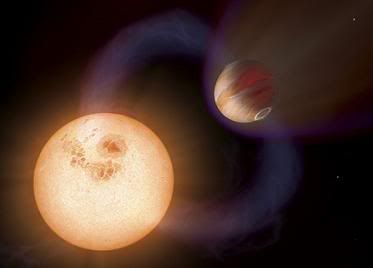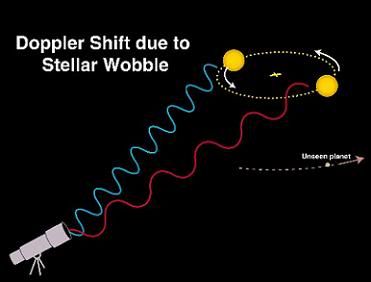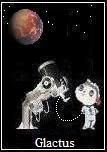|
|
Post by glactus on Aug 4, 2012 17:29:38 GMT
 Twinkle, twinkle little Star show us where your planets are are they in that special zone tell us that we're not alone tell us we can make a fuss say there's people just like us way out in your worlds so far twinkle, twinkle little star.  A Star and planet NASA's Kepler mission has confirmed its first planet in the "habitable zone," the region where liquid water could exist on a planet's surface. Kepler also has discovered more than 1,000 new planet candidates, nearly doubling its previously known count. Ten of these candidates are near-Earth-size and orbit in the habitable zone of their host star. Wonders await us in our search for new planetary systems. The rate of discovery is so fast that in just a few years we may be able to make astonishing discoveries about life on other worlds. If this comes to pass, what we find will be so close in astronomical terms that we will at last enjoy confirmation of what we have suspected for so long - that life is abundant in the Universe, it is everywhere, and a percentage of those life forms are intelligent.  The wobble detection method To see 7 minute and 28 second minute video of the Kepler space telescope and Xoplanets just click on the link below. Has sound. Full screen option bottom right. www.youtube.com/watch?feature=player_detailpage&v=vjw-ALu1BSE Credits: These are non copywrite images Text by wikipedia/Galactus Video by YouTube |
|
|
|
Post by authorgonal on Sept 3, 2012 19:48:35 GMT
10 years ago 'other life' was something only eccentrics like me assumed was a reality. Now it has become an expectation.
However, although single cells may be very common I am becoming more reserved re intelligent (especially mechanically proficient) life. The Earth co-incidences in our evolution are just incredible almost unbelievable. Moon size/position just one crazy thing.
Those that 'made it' probably have moved on from the need for a planet. Probably very few that coincide with our development. The so far negative search for ET doesn't surprise me much. It's ironic really. By the time we are able to colonize other systems we will no longer need to or wish to. Be fun to explore though....
|
|
|
|
Post by glactus on Nov 3, 2012 3:42:17 GMT
I agree with everything you have said. The Earth is a special place and everything had to come together, Moon and all.
Problem is that we know that the building blocks of life are abundant in the Universe and it would be inconceivable to believe that they would attract just one planet.
The law of averages are just too great - 100 billion galaxies in the Universe and countless planetary systems.
Even if there was intelligent life on one planet in each galaxy, there would be 100 billion of them.
We must not give up.
Glactus
|
|
|
|
Post by authorgonal on Nov 5, 2012 21:04:24 GMT
Although I hope that's right it is scary. Why should competitive evolution be confined to Earth - if you see what I mean...
|
|
|
|
Post by glactus on Nov 7, 2012 9:20:40 GMT
What makes me think this way is that when Haley's comet last came by, a probe was put through its tail to see if it were true that comets are responsible for distributing the building blocks of life right in the path of the Planets.
When the probe came back, it was full of them.
That answered Astronomers long time theory that comets distribute these same building blocks throughout the Universe, so it may be true to say that all species would evolve from the same building blocks.
I have tried to believe that intelligent species could evolve from whatever quantum theories one's mind may be able to concoct up, but the comets cause me a problem.
Glactus
|
|
|
|
Post by authorgonal on Nov 30, 2012 20:00:51 GMT
Yes, I agree. It's not so long ago that such views were regarded as eccentric - no longer. BUT..
I just get a feeling of suspicion. A feeling that the whole thing is one big 'set-up'. The mathematics, the physics, (everything) is so finely balanced between impossible and never... it just seems very odd.
Anthropy is a clue maybe.
|
|